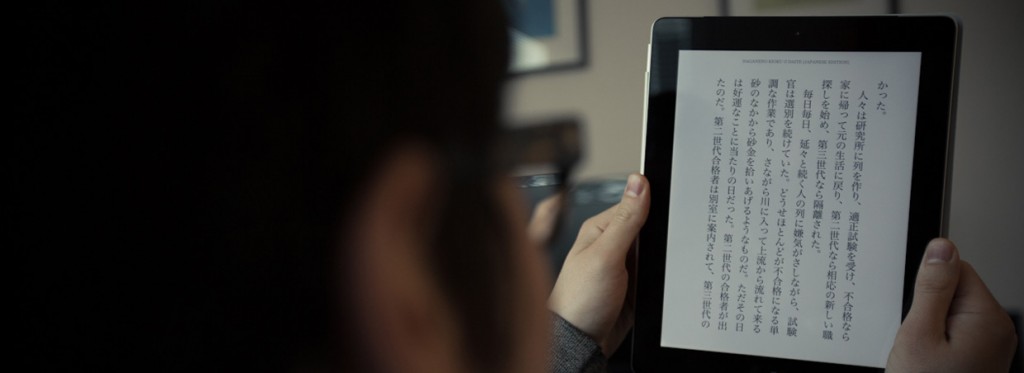
Just as libraries in the US have had to learn to navigate the sometimes frustrating world of digital content circulation, libraries in Japan have launched digital lending initiatives of their own. While the numbers remain small–only a total of thirty-three libraries offer some form of ebooks–it’s the high rate of adoption spreading throughout the various library systems that are noteworthy.
An article for Mainichi.jp on the ups and down of digital library lending in Japan demonstrated some interesting parallels to what readers in other countries have faced when trying to shift into a digital lending mindset.
Patrons have been quick to adopt the service, too, according to several librarians. One library only pursued digital lending after the numerous requests it received from patrons, and stated that in the three months they’ve offered this type of 24-hour access to ebooks, patrons have borrowed more than four hundred titles of the 3,400-book catalog.
While the first library to offer ebook lending in Japan did so as far back as 2007, it seems that the mistakes US libraries and Japanese libraries made at the onset went hand in hand. Tokyo’s Chiyoda Public Library first started with renting out the actual readers, or in their case, tablets, that could only be used while in the library. The investment in the stockpile of devices was significant, as was the content to put on it, and there was no benefit to using it over simply reaching for a book off the shelf. US libraries initially experimented with in-house e-readers that could be checked out and borrowed, but still required the investment in the technology and a staff trained to assist patrons with the devices.
Much like the headache of licensing ebooks to libraries stateside, Japanese patrons and librarians have been frustrated by the lack of bestselling and new release content available for digital lending, for many of the same reasons that publishers in the US have balked at making their entire catalogs available to libraries, namely fears that print sales will decline.
However, one library conglomerate in Japan has seen enough of an impact in ebook lending that probably won’t translate in the states, and that’s an increase in people who do not live in the immediate area but who are traveling to other regions to take advantage of ebook lending. While many US libraries require proof of immediate residency to use their library, eliminating the benefits of ebook lending altogether, would-be patrons have actually traveled to the nearest library in order to sign up for library cards and take advantage of ebook availability, which has proven good for local businesses as these new patrons shop and dine in the region while they’re there.
While so much of the Japanese ebook lending market has mirrored that of other regions, it will be interesting to see how the market takes to digital magazines, newspapers, audiobooks, and MP3 lending, all of which are available to US libraries through their agreements with their content providers.
Mercy Pilkington is a Senior Editor for Good e-Reader. She is also the CEO and founder of a hybrid publishing and consulting company.
